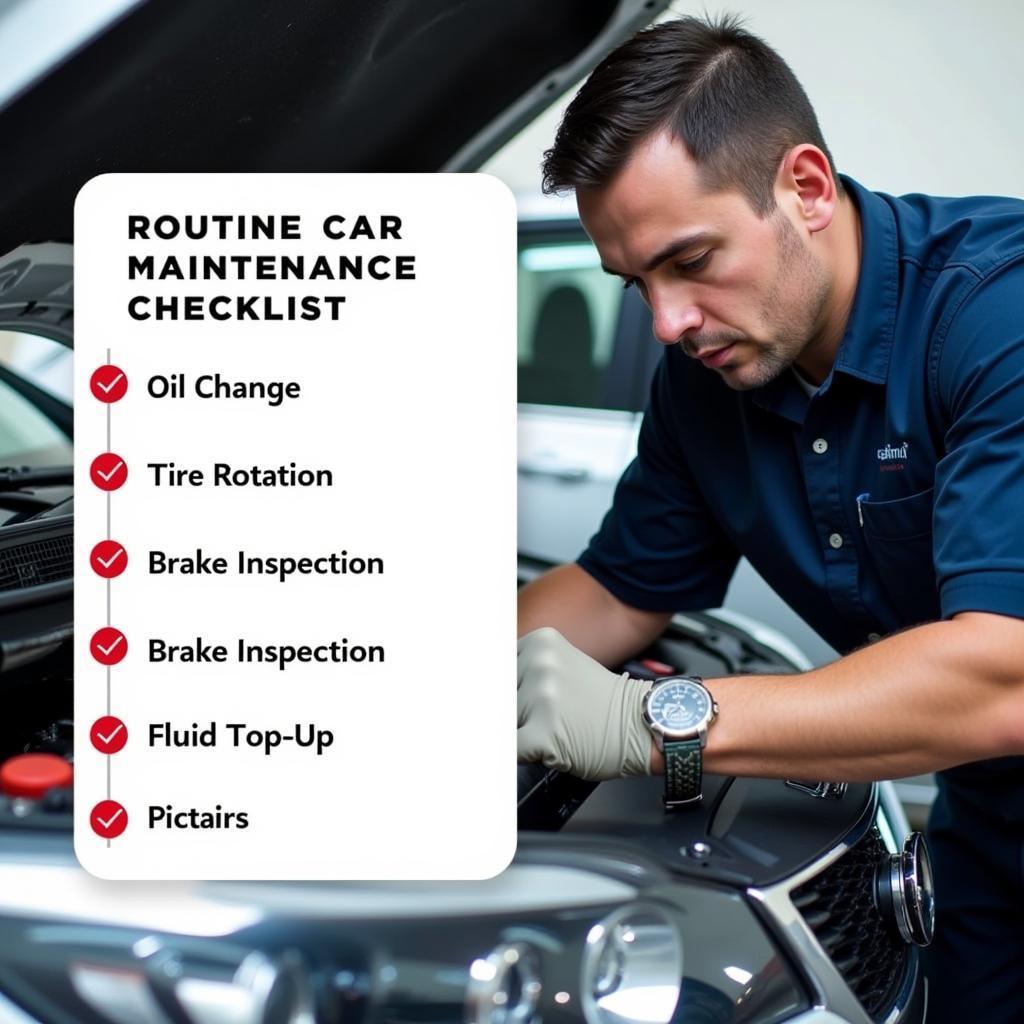Why Would a Car Have No Service History?
You’re eyeing a used car that seems like a steal, but there’s a catch – it has no service history. Should you run for the hills or is this a diamond in the rough? A car without a service history can be a red flag for several reasons, but it’s not always a deal-breaker. Let’s dive into why a car might lack documented maintenance and what it means for you as a potential buyer.
The Importance of a Service History
A car’s service history is like a medical record; it tells a story about the vehicle’s health and care over its lifetime. Regular maintenance, like oil changes, filter replacements, and fluid top-ups, are essential for keeping a car running smoothly and preventing costly repairs down the road. A well-documented service history provides valuable insights into:
- Maintenance Schedule Adherence: A car with regular service stamps indicates the previous owner was proactive about maintenance, increasing the likelihood of a healthier vehicle.
- Potential Issues: The service history can reveal recurring problems or areas that might require attention in the future.
- Component Replacements: Knowing when major components like the timing belt or transmission were replaced helps you anticipate future expenses.
Common Reasons for Missing Service Records
While a missing service history can be a warning sign, it doesn’t always signal a bad car. Here are some reasons why a car might lack service documentation:
1. Lost or Misplaced Records
Let’s face it, paperwork gets lost. The previous owner might have misplaced the service book or simply forgotten to keep all the receipts.
 Frustrated car owner searching for lost service records
Frustrated car owner searching for lost service records
2. DIY Servicing
Some car owners, especially those mechanically inclined, prefer to handle their own maintenance. While this can be cost-effective, it often leaves a gap in official service records.
3. Independent Mechanics
If the previous owner frequented independent mechanics who don’t use a centralized record system, the service history might be scattered across different garages.
4. Older Vehicles
Older cars, particularly those with multiple previous owners, are more likely to have incomplete service histories. Record-keeping practices were less stringent in the past.
5. Fleet Vehicles
Vehicles previously used for commercial purposes, like delivery vans or taxis, might have maintenance records kept internally by the fleet company, making it difficult to obtain a complete history.
Should You Buy a Car with No Service History?
The decision to purchase a car without a service history is ultimately a personal one based on your risk tolerance. Here are some factors to consider:
- Age and Mileage: A newer car with low mileage is less likely to have hidden mechanical issues, even without a complete service history.
- Vehicle Condition: A thorough pre-purchase inspection by a trusted mechanic is crucial. They can identify potential problems and estimate future repair costs.
- Seller Transparency: Is the seller upfront about the missing history? A trustworthy seller will understand your concerns and be willing to offer reassurance, perhaps through a detailed inspection report.
Mitigating the Risks
If you’re set on a car with no service history, take these steps to minimize your risk:
- Negotiate the Price: The lack of service history can be used as a bargaining chip to lower the asking price.
- Independent Inspection: Never skip this step! A mechanic can uncover hidden problems and give you a better understanding of the car’s condition.
- Establish a Maintenance Baseline: Once you purchase the car, immediately schedule a full service to establish a maintenance baseline and address any existing issues.
When a Service History is Non-Negotiable
While you can sometimes work around a missing service history, there are instances when it’s a non-starter:
- High-End or Luxury Vehicles: These cars demand meticulous maintenance, and a missing history can significantly impact their value and performance.
- Vehicles with Known Issues: If the make and model have a reputation for specific problems, a documented service history is essential to ensure those issues have been addressed.
The Bottom Line
Buying a car without a service history comes with inherent risks, but it’s not always a reason to walk away. By understanding the potential reasons behind the missing records, getting a professional inspection, and proceeding with caution, you can make an informed decision that aligns with your budget and risk tolerance.
FAQs About Cars with No Service History
Q: Can I get a service history from the DMV?
A: No, the DMV does not keep records of a vehicle’s service history.
Q: How much does a pre-purchase inspection cost?
A: Costs vary, but expect to pay between $100 to $200 for a comprehensive inspection.
Q: What if the seller claims they have a verbal service history?
A: While they might have some knowledge of the car’s maintenance, it’s best to rely on documented evidence.
Q: Can I create a service history for a car?
A: You can start documenting all future maintenance, but it’s impossible to recreate past service records.
Q: Should I walk away from a car with no service history?
A: It depends on your risk tolerance and the specific car. If you have any doubts, it’s always best to err on the side of caution.
Need More Car Advice?
Check out these other helpful resources:
Have other car-related questions? Contact our team of experts via WhatsApp at +1(641)206-8880 or email us at [email protected]. We’re available 24/7 to assist you.

